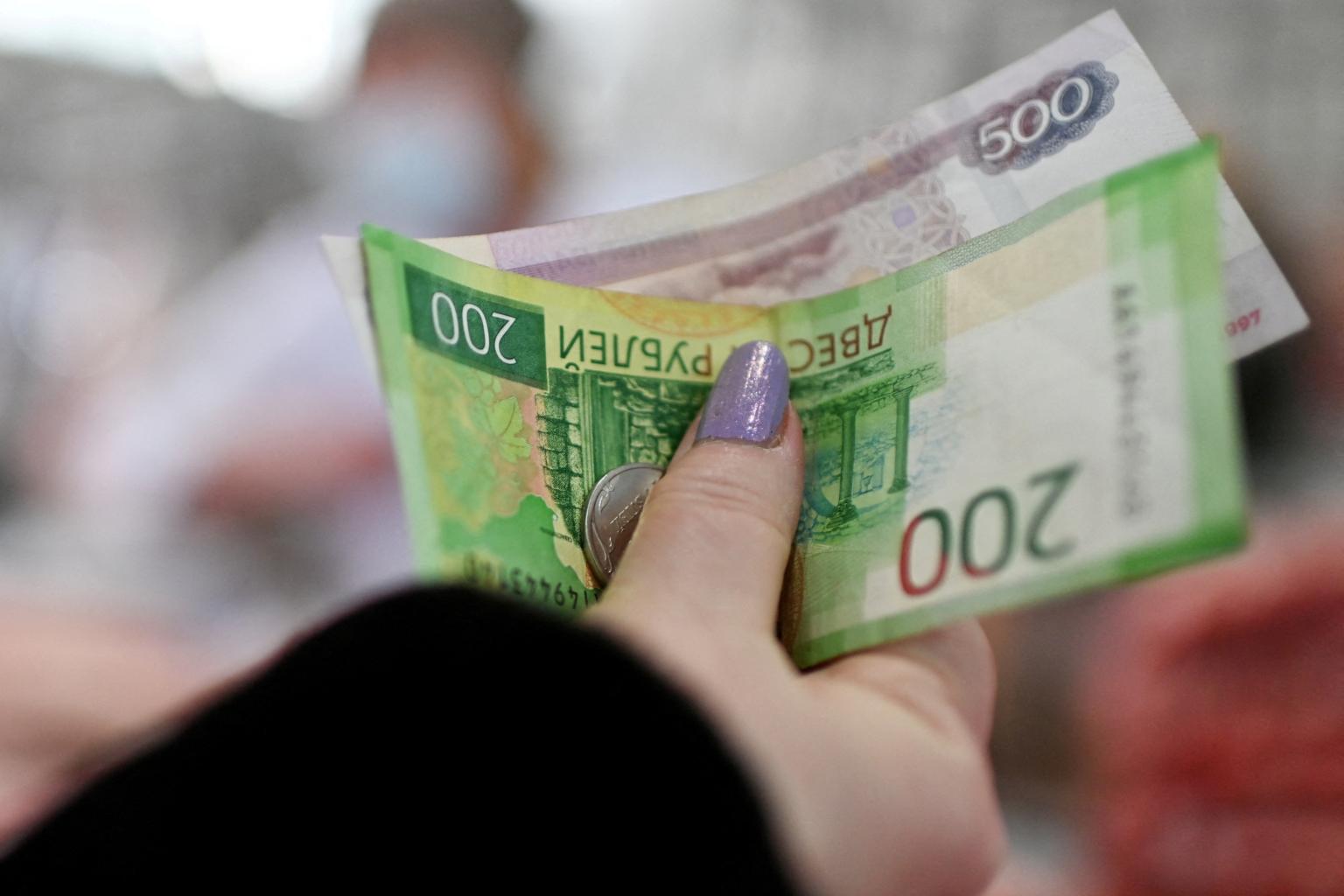Russia warns it may be forced to pay foreign currency debt in roubles due to sanctions
Sign up now: Get ST's newsletters delivered to your inbox

Western sanctions over events in Ukraine have cut Russia off from key parts of global financial markets.
PHOTO: REUTERS
MOSCOW (REUTERS, AFP) - Russia's Finance Ministry said on Monday (March 14) it had approved a temporary procedure for repaying foreign currency debt, but warned that payments would be made in roubles if sanctions prevent banks from honouring debts in the currency of issue.
Western sanctions over events in Ukraine have cut Russia off from key parts of global financial markets, triggering its worst economic crisis since the 1991 fall of the Soviet Union.
"Claims that Russia cannot fulfil its sovereign debt obligations are untrue," said Finance Minister Anton Siluanov in a statement. "We have the necessary funds to service our obligations."
The government is due to pay US$117 million (S$159.8 million) on two of its US dollar-denominated bonds on Wednesday.
The ministry said it had approved a temporary procedure to allow banks to make payments in foreign currency, but said the possibility of those payments going through would depend on sanctions.
If payments are not possible, the Finance Ministry said it would make eurobond repayments in roubles, which is tantamount to a default. The rouble has dived to record lows in recent weeks.
"The freezing of the central bank and government's foreign currency accounts can be seen as a desire from several Western countries to organise an artificial default," said Mr Siluanov.
Sanctions on Moscow has frozen a large part of Russia’s foreign currency reserves, while several Russian banks have been banned from the Swift international payments network, hampering efforts to move money outside of the country.
The Russian central bank has restricted access to foreign currency and the government rolled out initial support measures which helped stabilise the rouble late last week, but the currency is still down almost 30 per cent against the US dollar since Russian troops entered Ukraine.
Analysts warned the rouble outlook is highly uncertain in an illiquid market. Meanwhile, the Moscow stock market remained largely closed and will remain so for the rest of the week.
On Friday, business newspaper Vedomosti reported, citing sources, that the central bank and Moscow Exchange were looking for ways to prevent asset prices collapsing when trading eventually reopens. Stocks last traded in Moscow on Feb 25, after which the central bank imposed restrictions as volatility spiked.


